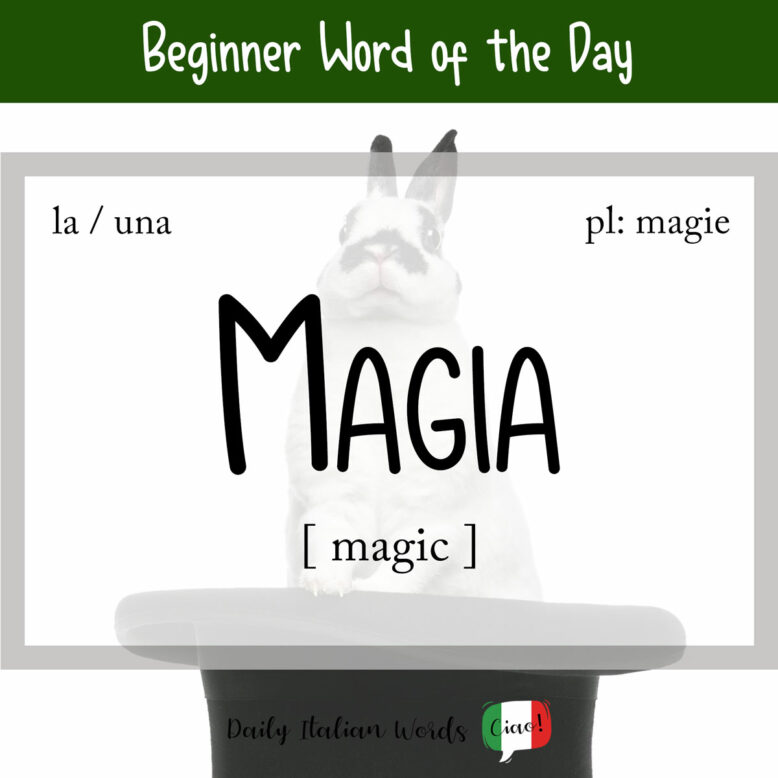The word for magic in Italian is magia (feminine, plural: magie). Both words can be traced back to the Latin magica, which in turn comes from the Greek magike (‘the art of magus’).

Below are some useful verbs you’ll often see used with magia:
- praticare la magia = to deal in magic
- esercitare la magia = to deal in magic
- credere nella magia = to believe in magic
- fare una magia = to perform a magic spell
Nel medioevo, tutti credevano nella magia.
In the Middle Ages, everyone believed in magic.
Those who deal in white magic (magia bianca) use it only for good, whereas black magic (magia nera) refers to the use of magic for evil and selfish purposes.

When magic is used as an adjective instead of a noun, it often (but not always) translates as magica instead of magia. For example, a magic wand is a bacchetta magica whereas magic word is parola magica. The term magic show, on the other hand, is best translated as spettacolo di magia (lit: a show of magic) and magic number is numero di magia.
Harry Potter porta sempre con sé una bacchetta magica.
Harry Potter always carries a magic wand with him.
A few common terms related to the word magia include:
- stregoneria = witchcraft
- incantesimo = magic spell
- sortilegio = enchantment / fortune telling
- malia = spell / charm
- malocchio = hex / jinx
- maleficio = curse
In a figurative sense, magia can refer to the mystical effect produced on the senses or soul by something pleasant. The phrase la magia della serata (the magic of the evening), for example, doesn’t actually refer to magic but rather the delightful way in which that particular evening seems removed from the humdrum of everyday life.
Finally, the expression come per magia is used to talk about something that happens or appears suddenly and unexpectedly.
Stavo bevendo in un locale quando, come per magia, mi sono ritrovato davanti a lui. Non lo vedevo da vent’anni!
I was drinking at a bar when, as if by magic, I found myself in front of him. I hadn’t seen him for twenty years!
Heather Broster is a graduate with honours in linguistics from the University of Western Ontario. She is an aspiring polyglot, proficient in English and Italian, as well as Japanese, Welsh, and French to varying degrees of fluency. Originally from Toronto, Heather has resided in various countries, notably Italy for a period of six years. Her primary focus lies in the fields of language acquisition, education, and bilingual instruction.


